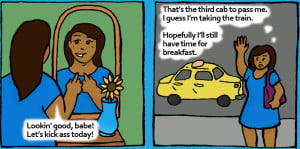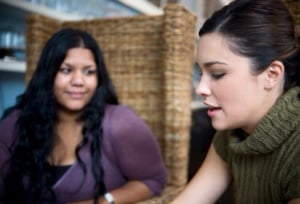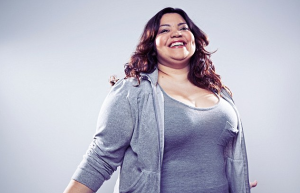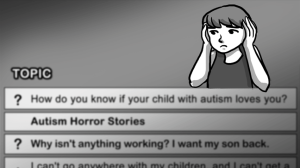
A person shrugs sheepishly.
We all have friends who have said it. We might have been there ourselves at one point in our lives.
“I’m not political.” Or “I don’t like to be political.”
And regardless of where you live, folks with similar mindsets will invariably find themselves in good company.
In the 2016 election, 41.6% of eligible voters, instead of voting, held themselves an apolitical party (though a few have compelling political reasons for not voting).
Of course, in the wake of the election, we are currently experiencing the consequences of that mindset, as white supremacists celebrate and hate crimes proliferate. And while the election has woken up some folks from their apolitical slumber, it shouldn’t take the election of a bigot to propel people to act.
Being supposedly apolitical has always been problematic.
For one, apathy – not giving a shit enough to act – is a privilege. Not everyone has the luxury to stay disengaged. And those who don’t won’t agree with your choice.
That is, as Desmond Tutu said, “If you are neutral in situations of injustice, you have chosen the side of the oppressor.”
Think of it this way: Claiming to be apolitical is to civic engagement what “colorblindness” is to anti-racism. Espousing such an ideology only pretends race doesn’t matter, and is actually a form of racism. Similarly, espousing apolitical ideology only pretends what you do has no political ramifications (and, as Tutu argues, is actually quite destructive).
In fact, practically every decision you make has political ramifications. Pretty much everything is political.
Here are some examples to demonstrate this fact.
1. Shopping Is a Political Act
Maybe where you shop supports a specific candidate. (By the way, here’s a list of businesses that support the Trump family in one way or another. In fact, there’s now an app to help hit Trump where it hurts.)
Maybe the companies at which you shop support abusive and unethical working conditions, either here or abroad.
Take chocolate, for example.
The Huffington Post reports that, despite increased scrutiny in recent years, the industry’s “dependence on child labor has shown little sign of improving.” Whether you consider yourself political or not, most chocolate purchases (though not all) mean West African children involuntarily toil so that our kids can dress up and fill bags with candy bars every fall.
Or take the fashion industry, which profits off of revolving styles, unsustainable practices, and cheap labor. Check out the trailer for The True Cost to face those who pay the price for your “apolitical” fashion choices.
Likely the meat you buy, whether at grocery stores or restaurants, comes from slaughterhouses, inhumane for animals and workers alike. As with fashion, most consumers prefer to live in denial.
Let’s test it: Here is a slaughterhouse scene from the 2006 film Fast Food Nation. I’ll contact my editors to find out what percentage of readers clicked on it. Content warning on that link, of course!
And, yes, raising these issues means we must also consider class privilege.
In a country with a national minimum wage of $7.25 per hour, not everyone has the budget for or access to fair trade, shade-grown organic coffee or clothes made with organic cotton in union shops.
At the same time, I know of many people loaded with class privilege who rarely consider the impact of what they’re supporting each time their credit card chip gets read. And I’m confident you do, too.
2. Consuming Media Is a Political Act
Many white Americans sure don’t seem to like racism, but then they watch show after show packed with white people, fictional realms that hardly reflect a diverse country and world.
Watching shows that feature protagonists of Color – Fresh Off the Boat, Jane the Virgin, Luke Cage, Master of None, and Insecure, to name a few (which, sadly, covers most of them) – and that are made by creators of Color helps to eliminate the bleaching of our media.
The upcoming Black Panther movie will consist of a cast that is “90%” Black. We white people need to see that movie in droves to prove to nervous (white) movie execs that we can handle the experience that folks of Color have to deal with for practically every movie. (After all, if it’s not good, you can just take in the sights of Chadwick Boseman.)
In other words, our media choices either support or challenge racism, a very politicized injustice.
Spend some time on We Need Diverse Books, and you’ll understand that the media we share with our children shape the worldview of the next generation.
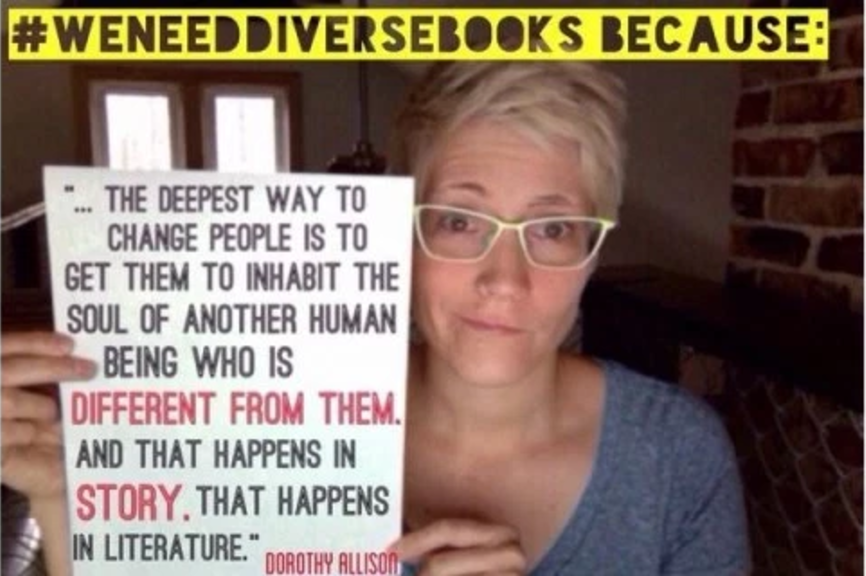
A person holds a sign with a quotation by Dorothy Allison that addresses why we need diverse books: “The deepest way to change people is to get them to inhabit the soul of another human being who is different from them. And that happens in story. That happens in literature.” Image source: We Need Diverse Books.
And worldview matters. After all, exit polls reveal that white voters overwhelming elected into office a white presidential candidate endorsed by the Ku Klux Klan.
You may have heard of the concept of “voting with your dollars.” Every time you spend money, whether on children’s books or movies, your choices have political ramifications.
3. Commuting to Work Is a Political Act
But the ramifications aren’t always so clearly tied to purchases.
If you are not working from home, do you drive to work? Take the bus? Ride a bike? Walk?
Your means of commuting is completely tied to politics, as infrastructure doesn’t just magically build itself.
Whether your municipality invests in bike lanes, public transportation, or roads depends on your choice.
In addition, your choice has environmental implications, which is also tied to politics. My hometown, for example, has its own Office of Sustainability and Environment, which, through taxpayer dollars, works to “develop innovative environmental solutions.”
Yours probably has one, too. And if it doesn’t, remember that the absence of such a department is a political choice, one likely to hasten climate change.
4. Buying a Home – If You Can Afford It – Is a Political Act
If you are privileged enough to buy a home, the choice you make is entirely political. Will your purchase support gentrification, which can disproportionality harm communities of Color, most often by pricing them out of their own neighborhood?
Or will your purchase support segregation, which too has a host of consequences, including the limiting of one’s worldview?
When we think of segregation, we too often think of the South, yet segregation lives on throughout this country’s most “progressive” cities.

This political cartoon by Matt Davies juxtaposes an image of a Confederate flag to represent the South and fences – in the shape of the Confederate flag – segregating schools and neighborhoods to represent the North. Image source: Pulitzer.org
Unfortunately, there is not a lot of real estate between segregation and gentrification, but let’s not fool ourselves into believing the choice has no political ramifications.
5. Enrolling Your Children in School Is a Political Act
The driver behind many home purchases is neighborhoods with “highly rated schools.” Unfortunately, what influences such designations is entirely political: how white the school is and the results of problematic standardized tests.
Schools today are so segregated that John Oliver devoted most of a Last Week Tonight episode to the topic:
(And what does it say about our media that we can learn more about educational politics from comedy shows than from news sources?)
If you choose the advanced program for your child, you are likely choosing a program that is egregiously segregated by race and class.
If the school is a charter school, you may be helping to transform public education into a “poorly regulated business.”
If the school is public, your teachers are likely unionized, and union workers tend to go Democratic.
Your neighborhood school is filled with not just children, but also with politics.
6. Who You Love Is a Political Act
While anti-miscegenation laws, which outlawed the mixing of races, ended in 1967, there is still plenty of pressure to limit and restrict who we love.
Just check out the backlash every time a company, through its advertising, normalizes a couple that is not strictly cis, straight, and white.
Some may remember the Cheerios commercial that featured an interracial couple a few years back. Or the Honey Maid ad and Adidas ad representing gay couples. In each of these cases, the companies had to defend their decisions against hate-filled pushback.
Biases against marginalized groups also creep into people’s dating, negatively targeting Black women and Asian American men, especially.
But let’s not pretend dating choices are just “preferences” and not the result of systemic oppression, a point recently highlighted in The Root’s “Why Your Sexual ‘Preference’ is Political.”
So when you love someone – in spite of systemic oppression that manipulates you not to – acting on that love is most certainly political.
7. Loving Yourself Is a Political Act
And for this one, ignore anything my privileged ass says; instead savor the words of “black, lesbian, mother, warrior, poet” Audre Lorde: “Caring for myself is not self-indulgence; it is self-preservation and that is an act of political warfare.”
She goes on, “The true focus of revolutionary change is never merely the oppressive situations that we seek to escape, but that piece of the oppressor which is planted deep within each of us.”
***
So enough of the I-don’t-like-to-get-political arguments. Whether you acknowledge it or not, your choices are political, It’s just likely that your “neutrality” has been supporting unethical and oppressive systems.
Instead, embrace being political. As this country goes to shit, it’s long past time to give a shit. You are needed – perhaps more than ever in your lifetime.
And there is no shortage of ideas to help you direct your political energy:
- An anti-Trump movement is calling for the boycott of these 32 retailers, from Business Insider
- The Art of Protest, from The New York Times
- 5 Ways To Be A Silent Trump Protestor, from The Huffington Post
- The Lesson from Standing Rock: Organizing and Resistance Can Win, from The Nation
- Opportunities for White People in the Fight for Racial Justice, edited by Jonathan Osler
- Resisting Donald Trump: Getting prepared to fight immigration raids and deportations, from Salon
- Speak Up: Responding To Everyday Bigotry, from The Southern Poverty Law Center
- The Resistance: How to Defeat Donald Trump’s Plot Against America, from The Stranger
- A 12-Step Program for Responding to President-Elect Trump, from The New York Times
- What I’m Doing To Get My Black Ass Ready For The Next 4 Years, from The Establishment
- What you – yes, you – can do to save America from tyranny, from The Dallas Morning News
And stay tuned to Everyday Feminism, as contributors are working tirelessly to provide you with tools and inspiration to find the cracks in the post-election shroud. After all, cracks, as the late Leonard Cohen sang, are “how the light gets in.”
[do_widget id=’text-101′]
Jon Greenberg is a Contributing Writer for Everyday Feminism. He is an award-winning public high school teacher in Seattle who has gained broader recognition for standing up for racial dialogue in the classroom — with widespread support from community — while a school district attempted to stifle it. To learn more about Jon Greenberg and the Race Curriculum Controversy, visit his website citizenshipandsocialjustice.com. You can also follow him on Facebook, Tumblr, and Twitter @citizenshipsj.
Search our 3000+ articles!
Read our articles about:
Our online racial justice training
Used by hundreds of universities, non-profits, and businesses.
Click to learn more









